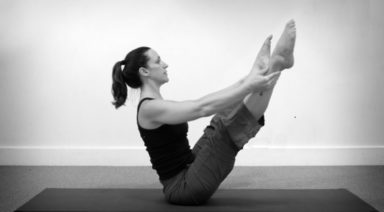How to Tell If You’re Being Controlled by Your Mind or Intellect

We make decisions every day. These decisions can fall under a few categories: ones we feel good about, ones we feel badly about, and ones that don’t make us feel anything.
The decisions we make can make our lives heaven or hell to live in because everything in this world is subject to the law of cause and effect, also known as the Law of Causation. We know what happens when we decide to drink too much alcohol one night. The next morning, we feel sick, tired, and most likely have a headache.
We won’t be able to function optimally and we suffer. Yet, even with this knowledge of the effect, people still decide to drink too much alcohol all too often. In order to understand why people do this to themselves, we have to break down the types of equipment we have as humans and better understand their functions. These understandings come from Vedanta: the ancient teachings of yoga as described in the Bhagavad Gita.
As humans, we are made up of matter and spirit. Spirit is the consciousness that gives rise to our matter. Spirit is your highest Truth. Without Spirit, there would be no matter. Our matter is comprised of three types of equipment; the body, the mind, and the intellect. The body is, of course, your physical manifestation with your organs, limbs, skin, bones, etc. This is what makes you tangible. Your mind is defined by Vedanta as the home of all your emotions like love, hate, anger, jealousy, joy, etc. It is also the home of your desires, likes, and dislikes.
Your mind is where your preferences live. And lastly, your intellect, your third and most important equipment is your ability to be objective and discern what is truth and what isn’t true based on knowledge and wisdom. Your intellect is the mature reasonable part of you that can question and think for itself when there’s adversity and when others are imposing their opinions and ideas on you. Your intellect stays centered regardless of the chaos happening externally.
How the Mind & Intellect Work
You might have already deduced that the mind is where your impulsive decisions live based on a whimsical emotion, which we all know those come and go rather quickly. Your intellect is what makes you think twice about that impulsive decision and hopefully stops you before you or someone else gets hurt.
The mind wants satisfaction now while the intellect understands that sometimes satisfaction may not happen now but, there will be satisfaction later with the right action, clarity, and patience. The popular (paraphrased) verse in the Bhagavad Gita, Chapter 18, “What’s nectar, in the beginning, becomes a poison in the end. What’s poison, in the beginning, becomes nectar in the end.”
If we could understand this phrase and live by it, we wouldn’t have any problems or stress in our lives ever again. We would understand how to decide what to do when to do it, and with whom. But, and this is a big but, although we can conceptually understand the phrase above, we aren’t wise enough to live by it. Here’s the hook, line, and sinker: we aren’t wise enough because our minds are too strong and our intellects are too weak. Recall that our minds are the home of our emotions and desires.
So if this equipment is strong it means that we are controlled by our emotions and desires first. We allow these emotions and desires to take over. This means our ability to rationalize and be objective isn’t strong enough hence our intellects are weak. With a weak intellect, you’ll be tossed and turned in all directions by the impulses of your senses. In the Bhagavad Gita and the Yoga Sutras of Patanjali, there’s a visual example to better showcase how your senses, body, mind, intellect, and Spirit interplay.
Imagine a horse and carriage, with its driver controlling the reins and the passenger inside the carriage. The horse represents our five senses going in all directions. The reins represent the mind because wherever the senses go the mind goes, too. The driver represents the intellect. So the intellect has to be strong to control the reins attached to the horse in order to arrive safely to their destination.
The carriage is your body. The passenger inside the carriage is the spirit. What would happen if the driver let go of the reins? The horse would run all over the place, the carriage wouldn’t be safe, and the passenger wouldn’t have a place to sit during their journey.
Therefore, the process of taking control of your life falls on the priority to develop your intellect and make it so strong that no matter where those horses (the senses) want to roam, you know how to pull the reins (the mind) back into the right position.
When you make a decision you use one of the following methods:
- Just your mind
- Just your intellect
- Both your mind and your intellect
If you only use your mind, you could be pulled by your senses before you make the decision. You’ll feel confused and doubt about your decision. You’ll then have suffering involved with the outcome of the decision. If you use your intellect, you’ll remain calm before, during, and after the decision has been made.
You’ll have no doubts and be clear. You may be feeling different things, but understand clearly what needs to be done. If you use your mind and your intellect together, then both your emotions and your thought processes are in agreement and you’ll feel at peace knowing that you’ve made the right decision.
Assessing Your Mind
Therefore, a way to assess if you’re being controlled by your mind or your intellect is to observe how you feel. Do you feel confused, stressed, or drained? This implies your mind has taken the reins and you’re just going along for the ride. Instead, do you feel calm, centered, and clear? If so, your intellect has taken over the reins and you’re in control.
If you have any addiction, then your mind has taken over that part of you. You’re a prisoner to that addiction. You can’t be happy or content without it. We are all addicted in some capacity to something or someone since we are attached. The list below is intended to read through and imagine you are asked to stop using or being around any of these things for at least 30 days. Notice your reaction when you read each item. If you immediately think, “Heck no. I can’t last 30 days without doing this” then that item has control over you and you are a prisoner to that thing. This means your mind is too strong and you’ve got to strengthen that intellect.
- Coffee
- Drugs (not prescription)
- Shopping
- Sugar
- Alcohol (wine, beer, or liquor)
- Working out (you know when it’s too much)
- Sex
- Gossiping / Drama
- Social Media
- Cigarettes
- Watching TV
- Complaining
- Going out/ hanging out with friends
- Video games
- Relationship with Significant Other
- Music
- Food (excessive)
What could you not live without in the list above? The ones you read that didn’t trigger you at all you don’t have a problem with. The ones you read which triggered you are the ones that your mind has become attached to. This means you’re not in control. That item is in control of you. The only way to get control back is to develop your intellect.
How to Gain Control
There are three things you should do daily in order to help yourself get a stronger intellect.
- Question everything. This requires reflection and an ability to unlearn. Unlearning is the most important tool to use when practicing yoga. There’s far too many learned behavior and opinions that we’ve adopted to be our own truths. If we question everything we will be able to rise above these conditioned behaviors.
- Never take anything for granted. Not only is this about being grateful for what you have and don’t have, but it’s about realizing that the trees give you oxygen daily, thus let you live. We shouldn’t take the trees for granted. The sun gives you vitality and light every day. We shouldn’t take the sun for granted. Your body heals itself every minute of the day. We shouldn’t take that for granted. And the list goes on. Never take anythingfor granted.
- Keep studying philosophy and yourself. The above imply that you’ll be studying yourself and the world’s antics, but just to make sure it wasn’t missed, studying and gaining knowledge will eventually strengthen your intellect when you apply the teachings and make the knowledge convert to wisdom.
The reason it’s important to develop your intellect, is that once you have strengthened it, you’ll be able to reunite with the true you, the Spirit. Joining with this highest Truth is the reason the ancient teachings of yoga tell us to begin with a physical practice (asana). We have lost our way and building our intellect is the bridge to finding our way again. When we get there, we will be free, happy, and blissful. As the cliché states, “The Truth will set you free.” No more tossing around with the world because the mind isn’t being tossed with it.
Your future is in your hands. It all depends on what you do in the present. Hence, circling back to the Law of Cause and Effect. Study it and understand how you’ve gotten to where you are today by your past actions and you’ll easily see how your future will depend on what you do today. Take your life back! It’s your human birthright!
Yoga and Emotional Intelligence

Recently, in one of my journals, I read an article by a psychologist who had stumbled across an obscure research project involving emotional intelligence. I had first been exposed to the concept of emotional intelligence when I was working on my master’s degree back in the nineties. As a yoga teacher, emotional intelligence as a basis for a balanced life seemed intuitive.
The premise of the research is basically that our emotional intelligence is as important, if not more important, than our intellectual IQ. Without a strong emotional foundation, intelligence alone was not enough to create a successful and balanced life.
There are four components to emotional intelligence. The first is self-awareness or knowing what you are feeling and why. The second is self-management or the ability to use your self-awareness to get better at handling your impulses and disruptive emotions. The third component is empathy or the ability to sense how others are feeling; and the fourth component is being skilled at establishing and maintaining healthy relationships.
Without self-awareness, self-management, empathy and relationship skills, even the most intelligent person would find it difficult to live a healthy and stable life. That is because we are all dependent upon each other and emotions and feelings are a major part of human existence.
In yoga emotional turmoil is often referred to as “monkey mind.” This is an expression used to describe the jumping and scattering of our mind due to emotional instability. In life, it is all too easy for us to lose our emotional balance and end up leaping from one emotion to another.
Who doesn’t get pulled into drama and emotions or caught up in games, competition and fighting? How about sadness and fear? We call this being tossed around in the world. In the ideal, we are in the world, but not of the world. That means we are aware of our presence while being in control of our thoughts, words and actions. We have compassion for all of life and we relate to others with a sense of complete understanding. We appear in the world, but are not perturbed or thrown off balance by the events of life. Once this is achieved an individual is said to be liberated or free of the monkey mind.
Now, it is not that a person must go away and live the life of a hermit in order to achieve liberation. It means to live fully in the world, while maintaining a sense of emotional balance. It’s about control and reaction. If you learn to control your mind, you control everything. This is yoga intelligence. How do we achieve this? Practice; nothing in life is achieved without practice.
Sometimes people try to run away and hide and even renounce life to be free of life’s turmoil. But you can never run away. Without emotional intellectual we can remove ourselves physically, but the mind – its thoughts and emotions – go with us forever.
As the saying goes, “you take it with you wherever you go.”
Intellect in yoga is really mental attitude. “As the mind, so the person.” It is not about changing the outside world. It is about changing your attitude towards things. If you gain control over your emotions you will never be tossed about by the outside world. Emotional intelligence reminds us that there is nothing wrong with the world; the problems begin and end within our own minds.
We can try to measure the quality of life with a high IQ, but without awareness, control, empathy and the ability to relate the mathematical equation that measures our intellect, we miss the mark. The prize does not always go to the smartest, but it does more times than not, go to the one who has the ability to keep a focus; and keeping a focus requires the application of the four components of emotional intelligence: self-awareness, self-management, empathy and relating.
Therefore, with all things in life, be aware and fully understand their nature. Manage them with empathy and understanding, and then rise above the turmoil and be at peace. With awareness you begin to understand yourself. When you understand yourself you free yourself from the entanglement of worldly emotions. In this you will find a sense of balance and you will achieve the pinnacle of yoga and emotional intelligence: peace.





































